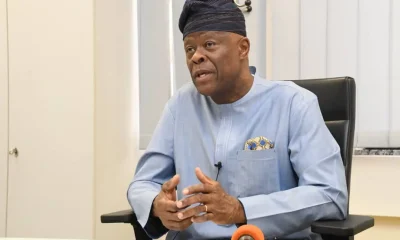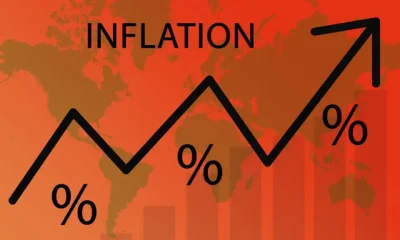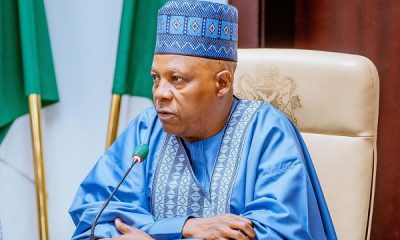ECONOMY
Hardship: Finance Minister declares End of Fuel and FX Subsidies on Nigerian Economy

The Nigerian Government, represented by Finance Minister Wale Edun, has confirmed the removal of fuel and foreign exchange subsidies. Edun made this announcement during the presentation of the Nigeria Development Update by the World Bank in Abuja on Thursday.
“Fuel and FX subsidies are extinguished,” he stated, highlighting the significant financial burden these policies had placed on Nigeria, costing over N10 trillion—about five percent of the country’s Gross Domestic Product (GDP).
In addition, the minister introduced a new government initiative aimed at tackling unemployment, particularly in the housing sector. “This approach is expected to stimulate construction activities and create substantial job opportunities. The plan will focus on mortgage and housing financing,” Edun explained.
Earlier, Central Bank of Nigeria (CBN) Governor Mr. Olayemi Cardoso outlined the reasoning behind the recent half-percent interest rate hike, which now stands at 26.75 percent. He emphasized that the policies and interventions aimed at addressing the Naira crisis and inflation are informed by empirical data. “Future policies and decisions will be evidence-based,” he said.
Meanwhile, Bauchi State Governor Bala Mohammed criticized the federal government’s policies during the event, asserting that these measures have contributed to the widespread hardship faced by Nigerians. “These policies are not working,” he declared.
It is noteworthy that in June 2023, the Nigerian government announced the removal of fuel and FX subsidies. Since then, fuel prices have surged to N1,030 per liter, and the foreign exchange rate has climbed to N1,660.49 per dollar, up from N195 per liter and N461 per dollar in May 2023. Consequently, Nigeria’s inflation rate rose to 32.70 percent in September, up from 20.41 percent in May 2023.














![Top Nigeria Newspaper Headlines Today 25th June 2024 [Tuesday] 87 Nigeria Newspaper Headlines](https://nigerianews247.com/wp-content/uploads/2024/04/Nigeria-Newspaper-Headlines-80x80.png)

![[VIDEO] Tinubu Stumbles while Boarding Presidential Parade Vehicle at Eagles Square 90 Tinubu Stumbles while Boarding Presidential Parade Vehicle at Eagles Square](https://nigerianews247.com/wp-content/uploads/2024/06/Tinubu-Stumbles-while-Boarding-Presidential-Parade-Vehicle-at-Eagles-Square-80x80.jpeg)


You must be logged in to post a comment Login